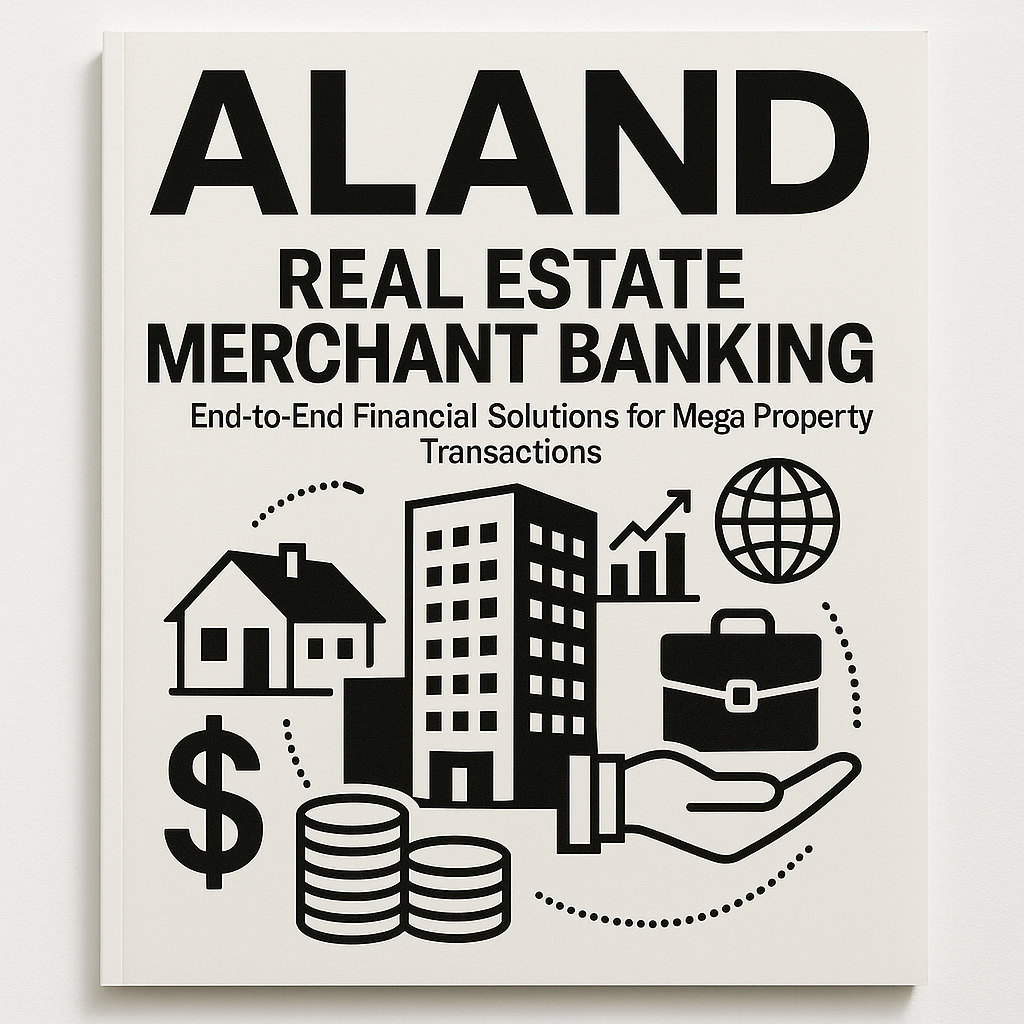Real Estate Merchant Banking: End-to-End Financial Solutions for Mega Property Transactions
- Published Date: 21 Aug, 2025
-
4.9★ ★ ★ ★ ★(83)

Real estate merchant banking is no longer confined to financing—it represents a fully integrated ecosystem that blends capital structuring, investment strategy, and brand positioning. Dr. Pooyan Ghamari, Swiss economist and founder of the ALand Platform, emphasizes that mega property transactions demand more than balance sheets; they require a fusion of global economics, financial innovation, and digital transformation to maximize value creation.
Strategic Value of Merchant Banking in Real Estate
Merchant banking offers corporations and investors a one-stop solution that covers acquisitions, syndications, debt structuring, and tokenized investment strategies. Unlike traditional financing, merchant banking aligns capital with broader macroeconomic forces, ensuring transactions are resilient to shifts in interest rates, geopolitical dynamics, and regulatory changes.
Dr. Ghamari’s analysis highlights how merchant banks are becoming strategic partners rather than transactional intermediaries. By combining economic foresight with technological tools, they unlock investment opportunities that extend beyond real estate into wealth preservation, immigration-linked residency programs, and global trade facilitation.
Cause-Related Marketing as a Catalyst for Real Estate Brands
High-value property deals are no longer judged solely by their ROI. Corporations and investors increasingly evaluate projects through the lens of social responsibility. Cause-related marketing, when applied to real estate, strengthens brand reputation and builds long-term trust with stakeholders.
Dr. Ghamari underscores that real estate developers and financiers who align with social initiatives—such as sustainable construction, community engagement, or affordable housing partnerships—enjoy measurable gains in brand equity and investor confidence. ALand’s blog on investor behavior patterns demonstrates that purpose-driven strategies consistently outperform short-term, profit-only campaigns.
This approach goes beyond philanthropy; it integrates economic utility with branding power, translating into stronger consumer loyalty and premium investor appeal.
Digital Transformation and Tokenization
Through platforms like ALand, corporations gain access to digital marketing tools and advanced analytics that track consumer sentiment and campaign effectiveness in real time. Tokenization, an area where ALand leads with proprietary solutions, allows mega properties to be fractionalized, opening access to high-net-worth individuals and institutional buyers simultaneously.
EE Gold extends this transformation into financial markets. By bridging crypto and physical gold, it demonstrates how digital assets can anchor real-world investments, ensuring liquidity, stability, and global transferability. This integration offers real estate merchant banks innovative pathways to hedge against volatility while enabling seamless international transactions.
Market Trends and Real-World Scenarios
-
Global Alliances: Cross-border partnerships between sovereign funds and private equity firms increasingly rely on merchant banking structures to balance risk and optimize returns.
-
Immigration & Residency Links: As Dr. Ghamari has often emphasized, high-value property acquisitions tied to residency and citizenship programs create dual-value propositions for investors seeking security and global mobility.
-
Digital Branding: Reports from The ALand Times reveal that firms actively aligning with cause-driven campaigns—particularly sustainability—see stronger media visibility and enhanced stakeholder trust.
These examples show that the future of merchant banking lies in integration across economics, branding, and digital ecosystems.
Practical Takeaways for Corporations
-
Align Capital with Social Causes: Integrate ESG (Environmental, Social, Governance) initiatives into project financing and highlight them in branding campaigns.
-
Leverage Digital Platforms: Use ALand’s analytics to measure consumer engagement, ROI, and brand sentiment shifts.
-
Adopt Tokenization Models: Expand investor bases by offering fractional ownership through blockchain-secured instruments.
-
Hedge with Hybrid Assets: Explore EE Gold as a financial stabilizer in volatile global markets.
-
Monitor ROI Beyond Numbers: Track reputation capital—measured through media coverage, investor trust, and consumer loyalty—as closely as financial returns.
For deeper insights and continuous updates, explore ALand’s Blog, the ALand Platform, EE Gold, and The ALand Times to stay ahead in the evolving intersection of economics, branding, and real estate finance.

